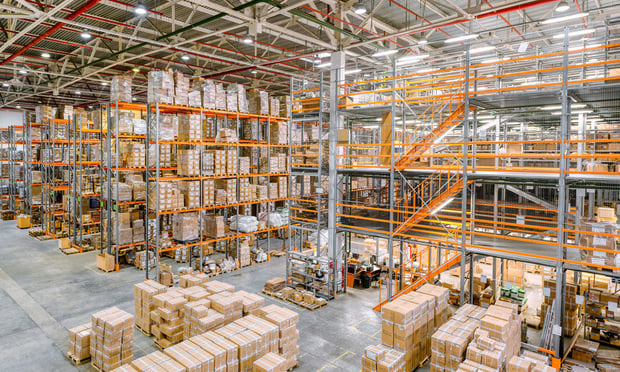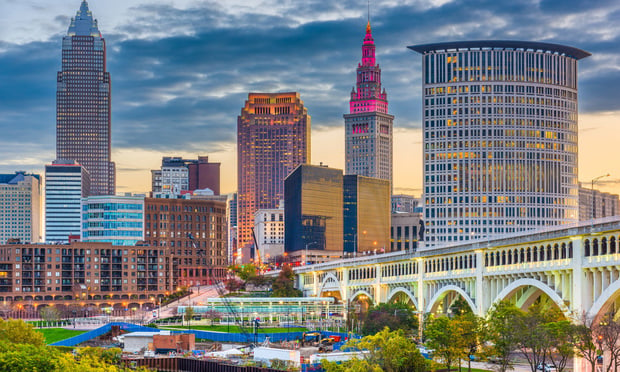CLEVELAND-As more and more certified "green" office high rises are touted throughout the country, a smaller group is sowing its seeds to becoming rich in eco-friendly projects. Perhaps somewhat overshadowed, the retail industry is making a mark of its own when it comes to environmentally-sensitive developments. While big-box retailers, such as Target, Wal-Mart and Lowe's, call on their own designers to configure what will amount to a substantial long-term cost savings, retail developers have been slow to catch onto the green initiative--until now.
Locally based Forest City Enterprises Inc. recently appointed two directors to lead the company's sustainability and energy management initiatives. Jon Ratner will fill the role of director of sustainability initiatives, providing leadership of sustainability-related best practices and procedures, while Joyce Mihalik, a certified industrial energy consultant, was named director of energy management. Mihalik will be responsible for the development, implementation and coordination of energy management and conservation strategies for the company's commercial management portfolio.
Ratner formerly served as development project manager for mixed-use, office and multifamily projects at Forest City's Denver Stapleton project. Located on the site of the former Denver International Airport, Ratner says the 4,700-acre Stapleton development has served as a cornerstone to increase the company's awareness and experiences with sustainability principles.
Ratner tells GlobeSt.com that his role is to educate Forest City executives and employees on the issue of sustainability. With the US Green Building Council's Leadership in Energy and Environmental Design (LEED) guidelines, Ratner plans to use the program as a catalyst for discussion. "It will be my responsibility to push their design teams on things like energy and water conservation," Ratner says. "My hope is that I will train myself out of a job in five years."
Dallas-based Archon Group is also succeeding in its pursuit to develop environmentally conscious retail centers. Just last week, the company received a gold-level LEED certification for its 243-acre Fairlane Green in Allen Park, MI. Because it's the first multi-tenant retail project with LEED certification in the country, the project is a milestone for the company.
In addition to reflective roofing and high-efficiency energy systems, environmental features include site irrigation from storm water detention ponds; green/permeable parking spaces; approximately 40% green space allocation throughout the development; and wetland-type retention ponds to create a natural habitat for wildlife and to manage storm water runoff.
The company has also accomplished other developments with sustainability in mind. At Poplar Creek Crossing in Hoffman Estates, IL, a 400,000-sf, Target-anchored power center, an extensive drainage system was put in place as a protection for above-standard on-site landscaping and trees. At Chatham Market, a 420,000-sf power center currently being constructed on the site of a former steel plant on Chicago's South Side, all buildings 10,000 sf or greater will have green roofs on 50% of the surface areas, providing insulation, water cleansing and oxygen creation.
Lance Taylor, development manager with Archon, says that there is more to gain from environmentally friendly designs than just sustaining the planet's ecosystem. Communities that initially stand firm against big-box retailers, fearing they will swallow the smaller retailers, suddenly turn soft when they see that kind of environmental consciousness.
"Big-box developers have a nasty reputation for slapping up four walls and a parking lot," Taylor tells GlobeSt.com. "This is a way to make small steps to be environmentally friendly. We're never going to be a small neighborhood developer, so we're looking at LEED friendly techniques that make it easier to have a project in title and to get permits with an open-book approach."
With the greening trend starting to set in, tenants too are increasingly pitching in, adds Curt Bailey, director of retail investments for Archon's Midwest office. "We're seeing a number of national retailers not only tailoring inventory mix and physical presentations to local markets, but also incorporating ecological elements into new locations."
While retailers and developers admit that in a long-term investment, the upfront costs of eco-design will eventually turn to a cost savings, the trend is still slow to catch on. But that may not be the case for much longer, says Forest City's Ratner. "The volatility of the energy markets are forcing landlords to look at these issues," he tells GlobeSt.com. "If it has an end result of long-term conservation of resources, it could be one glimmer of hope coming out of the situation. It's just nice to see an attention on these types of issues."
© 2025 ALM Global, LLC, All Rights Reserved. Request academic re-use from www.copyright.com. All other uses, submit a request to [email protected]. For more information visit Asset & Logo Licensing.







